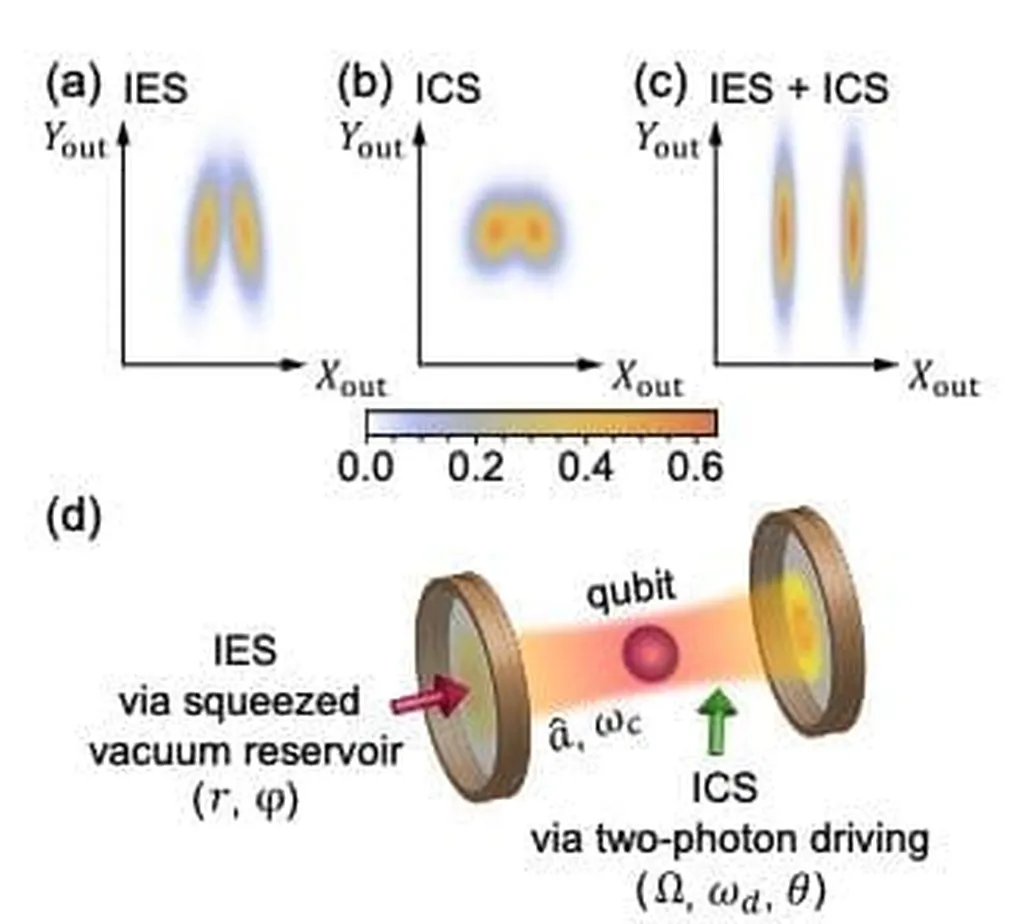In the realm of quantum physics and energy systems, researchers are continually exploring innovative ways to manipulate and control the dynamics of open quantum systems. Eric R. Bittner, a distinguished researcher in the field, has delved into the intriguing world of squeezed reservoirs and their potential to engineer nonclassical noise and control irreversible dynamics. His work, published in the prestigious journal Physical Review Letters, offers a comprehensive analysis of two coupled harmonic oscillators driven by independent squeezed baths.
Bittner’s research focuses on the emergence of coherence-driven entropy flow and the structure of exceptional points (EPs) in the corresponding Lindblad dynamics. Working within the Gaussian formalism, he derives closed-form evolution equations for the covariance matrix. One of the key findings is that squeezing induces entropy generation only at the second order in the anomalous correlations, a nonlinear mechanism that is absent in thermal environments. This entropy flow is accompanied by a rich non-Hermitian structure, revealing a characteristic “exceptional-point fan” in the (M1, M2) plane.
The exceptional-point fan separates a narrow PT-unbroken region of oscillatory dynamics from broad PT-broken sectors in which one normal mode becomes purely overdamped. This geometric organization of EPs indicates that PT symmetry survives only when the two reservoirs squeeze opposite quadratures and is generally broken for in-phase squeezing. Bittner’s analysis establishes squeezed reservoirs as a natural setting where information-bearing noise drives irreversible behavior through coherent pathways. This research lays the groundwork for experimentally accessible probes of entropy flow and critical mode behavior in more complex open systems.
For the energy sector, understanding and controlling the dynamics of open quantum systems can have significant implications. Quantum technologies, such as quantum sensors and quantum communication devices, rely on the manipulation of quantum states and the control of their interactions with the environment. By leveraging the unique properties of squeezed reservoirs, researchers can develop more efficient and robust quantum technologies. Additionally, the insights gained from this research can contribute to the development of advanced materials and energy storage systems, where the control of quantum dynamics plays a crucial role.
In summary, Eric R. Bittner’s research on squeezed reservoirs and their impact on open quantum systems offers valuable insights into the control of quantum dynamics. His findings have practical applications in the energy sector, particularly in the development of quantum technologies and advanced materials. As the field of quantum physics continues to evolve, such research will be instrumental in driving innovation and advancing our understanding of the quantum world.
This article is based on research available at arXiv.

